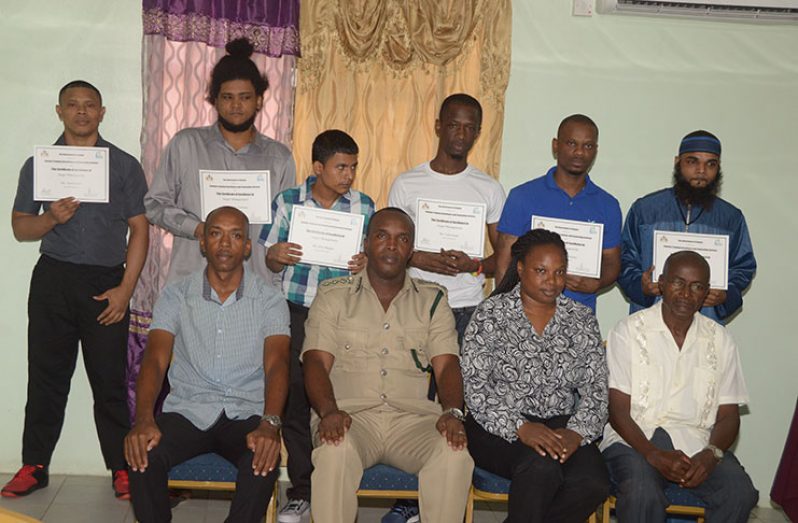UNDER the theme ‘Revitalising a purpose-driven organisation’ the Georgetown Prison has graduated eight inmates in anger management training in the third batch of an ongoing course.
The graduates are Alex Higgins, Colin Grant, Lennox Roberts, Affiba Yenkana, James Hunte, Tyrel Peters, Trevor Williams and Mohamed Ali.
Director of Prisons (ag) Gladwin Samuels, during the graduation ceremony on Wednesday, said inmates need to develop their ability to exercises self-control through anger management techniques.
“The prison is an environment with which if you don’t exercise self-control you can, in layman’s terms, ‘involve yourself’, because for various reasons people can provoke unnecessary situations,” the director explained.
He added: “A little situation can be blown out of proportion quite easily, especially if persons do not develop the ability to effectively cope with the challenges they will face while being incarcerated.”
Samuels made it clear that rehabilitation of prisoners is an ongoing process.
“We are adequately preparing them, whether it is with skill or educational training so that when they are released back into society, they are productive citizens. We have many persons who would have left these walls, and they are now gainfully employed as a result of the skills they would have acquired.”
He explained that many persons who were once deemed the ‘bad eggs’ are now advocates for other prisoners to conduct themselves in a respectable manner.
The prisons director noted that the prison environment is one in which control of anger is key for survival and it “could be the thin line between life and death or the thin line between freedom and continued imprisonment”.
Samuels indicated that one of the reasons for the lack of larger batches is due to space constraints and not the lack of funds.
Nevertheless, he said the prison directorate remains confident that as the prison infrastructure continues to improve, more prisoners will benefit from such rehabilitative training.



.jpg)











